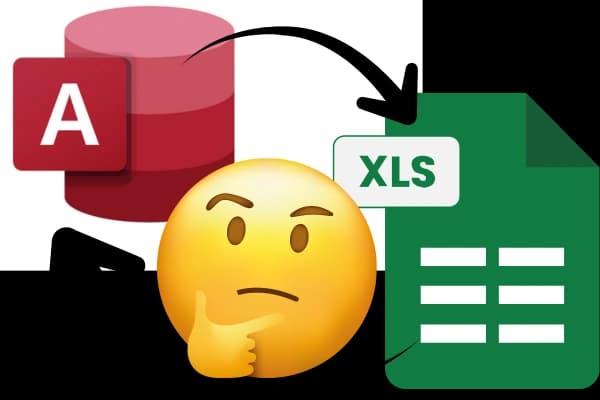Your Microsoft Technology Development and Consulting Experts - Operating since 2000
Your Microsoft Technology Development and Consulting Experts - Operating since 2000

Author: Daniel Thomas
Reading time: 12min

There is an overwhelming amount of possibilities within the Microsoft ecosystem, and choosing the right tool (or combination of) is a decisive factor in how you handle your data and business workflows. Both Excel and Access are powerful business tools, but it is important to know they solve different types of problems.
| Feature | Excel | Access |
|---|---|---|
| Purpose | Data analysis and calculations | Data storage and management |
| Best for | Spreadsheets, charts, and reports | Multi-user databases and applications |
| Learning curve | Easy to start, intuitive interface | Moderate, but scalable and structured |
| Collaboration | Limited for large datasets | Designed for shared data environments |
Both tools integrate with other Microsoft products, such as Power BI, SharePoint, and Teams, allowing you to extend their capabilities and utilise others, without the need for a major system overhaul.
- Microsoft Support"Access is better suited for managing data - helping you keep it organised, easy to search, and available to multiple simultaneous users. Excel is generally better for analysing data: performing complex calculations, exploring possible outcomes, and producing high-quality charts."
Excel remains one of the most widely used business applications in Australia. It offers speed, flexibility, and familiarity for anyone who needs to analyse data or create reports on the fly.
You should most likely choose Excel when your focus is on...
Excel is particularly effective for small teams or limited datasets, typically those under a few hundred thousand rows, situations in which simplicity and agility is the main goal. It's also the ideal front-end tool for presenting and interpreting data, especially when paired with Power BI for interactive dashboards.
However, as your data becomes more interconnected or requires multiple users to edit at once, Excel's flat-file structure can start to show its limits.
- Access JumpStart"When the data structures become more complex (large datasets, many users, relational tables) the choice starts shifting toward Access rather than Excel."

If your organisation handles multiple types of related information such as clients, suppliers, orders, and products, Microsoft Access provides a more structured and reliable foundation.
Access is the smarter choice when you need:
- SoftwareG"Microsoft Access allows for efficient organisation and management of large amounts of data ... Tables in Access facilitate the establishment of relationships between different sets of data ... Access offers robust data validation options to ensure data consistency and accuracy."
Although this article may seem to be pitting the two softwares together, that is far from the real picture. You don't always have to choose between Excel and Access, in fact, the two work beautifully together.
A common setup for Australian SMEs is to use Access as the back-end database (storing all business records securely) and Excel as the front-end analysis tool (for dashboards, pivot tables, and reports). By linking Access tables directly into Excel, your reports automatically update when the database changes, no need to copy and paste data between files.
This hybrid approach allows your business to enjoy the best of both worlds:
It also ensures that everyone works with the same source of truth, reducing duplication and saving time during reporting periods.
- Microsoft Support"When using the Office family of products ... If you store your data in Access and connect to it from Excel, you gain the benefits of both."
Many businesses unknowingly push Excel beyond its intended limits. Some common pitfalls include:

On the other hand, businesses that move to Access sometimes overlook proper database design principles such as normalising data or defining clear relationships between tables. Without this foundation, even a powerful tool like Access can become difficult to maintain or scale.
Another common mistake is treating Access as an isolated system rather than part of a broader Microsoft ecosystem. Failing to connect it with tools like Excel, Power BI, or SharePoint means missing out on automation, reporting, and collaboration opportunities that can transform how data is used across the organisation.
Ultimately, the right choice depends on your data structure, team size, and growth goals.
By choosing the right tool, or combination of tools your business can save time, improve accuracy, and make smarter decisions with confidence.
Daniel is a developer at the Office Experts Group, a curious mind into the world of programming, design and SEO. If you have any questions, please feel free to get in contact via the form below.
Copyright © 2024. Brayalei Pty Ltd T/As Office Experts Group. ABN 32 093 067 737. ACN 093 067 737. All Rights Reserved.